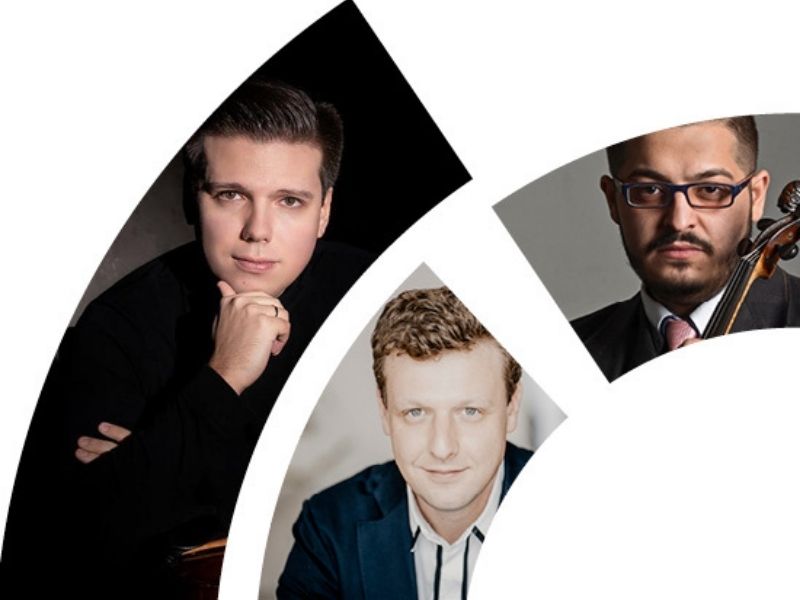
Stars and students in a lively concert: Sergei Dogadin, István Várdai, Lajos Sárközy and his orchestra, together with the freshmen of the Academy of Music
Our folk music heritage will play a prominent role on the 5 December concert of the Franz Liszt Chamber Orchestra at the Academy of Music. The show is supposed to be similar to a “before – after” collection, with the exception that the beginning shall also ooze beauty and the sense of belonging. The intricate motivation stemming from folk music and gypsy music will take centre stage through the classics of music literature.
Following thoughtful organizational pattern, the audience will meet the basic ensemble of the Franz Liszt Chamber Orchestra first with one of their most popular repertoire pieces, Bartók’s Romanian Folk Dances, setting the scene for the night. There is chance that the 1915 composition, originally written for piano, became a wonderful example of building on the foundations of folk music only through its string orchestra version.
Subsequent to the vibrant finale of the dances, the stage shall be filled with young people, bearing in mind that the concert is the first public event of the “Master Play” programme, organized by the Franz Liszt Chamber Orchestra and the Academy of Music. The chamber orchestra, led by István Várdai, passed on the knowledge needed for the perfect orchestral performance as part of an autumn course and the several week long rehearsal process leading to the concert. The most talented students will join the members of the world-famous orchestra tonight, greeting violinist Sergei Dogadin on stage.
The excellent representative of the Russian Violin School will slightly deviate from the thematic concept of the concert, but in return he is expected to please the Budapest audience with one of the most virtuoso concertos. Since a number of its motifs were considered technically impossible, Brahms’ Violin Concerto in D Major was a rarely heard piece for a long time. Originally, the sophisticated piece debuted with a friend of the composer, József Joachim, one of the greatest violinists of the 19th century. The current soloist, who is also the winner of a prestigious international competition named after the famous violinist, is a worthy successor to Joachim.
Dogadin is an active and passionate chamber musician. He regularly performs with internationally acclaimed musicians, such as Daniil Trifonov, Narek Hakhnazaryan and Denis Matsuev. His current instrument is a 1721 Domenico Montagnana violin.
The rhythm of dances will play an important role in the second half of the concert as well. Péter Wolf transcribed two of Liszt’s Hungarian Piano Rhapsodies, number 2 and 15, at the request of the chamber orchestra in the late 1990s, enabling the orchestra to play the works of its eponymous composer whose rich oeuvre offered no pieces for chamber orchestras otherwise. The transcript of Rhapsody nr. 2 has become an instant hit and the orchestra is happy to perform it ever since.
This is where Lajos Sárközy and his orchestra will take the stage. The orchestra is led by a musician whose family has engaged centuries-old Gypsy music for seven generations now. Following their gypsy music block, yet another Hungarian Rhapsody will hit the air, one from Dávid Popper this time, as part of a unique performance. The 19th century cellist was at least as renowned as József Joachim among the violinists. Like in the case of so many others, his passion for his instrument lead him to compose. Its Hungarian melodic atmosphere and the performance characteristics of the piece written in 1894 already evokes the world of gypsy music, while tonight the solo of István Várdai shall be accompanied by the orchestra of Sárközy, so the audience can expect a unique and truly exciting performance.
The night will close with the performance of the Hungarian Dances: the motifs of Dance no. 1, 5 and 6 shall first be played by the gypsy orchestra with the beauty and expressive power that once enchanted and inspired Brahms for a lifetime, preparing the terrain for the string orchestral versions of the popular classics, calling on the memory of musical roots previously presented.
Programme:
Bartók: Romanian Folk Dances
Brahms: Violin Concerto in D major, Op. 77
Interval
Liszt–Péter Wolf: Hungarian Rhapsody No. 2
Popper: Hungarian Rhapsody, Op. 68
Brahms: Hungarian Dances No. 1, 5, 6
